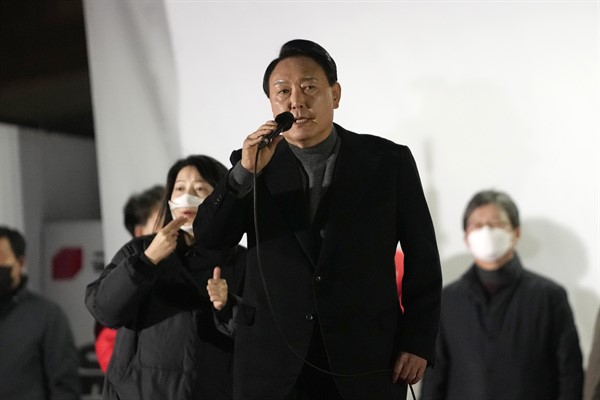On March 9, after a long campaign and an even longer election night, South Korea finally elected a new president: Yoon Suk Yeol, of the conservative People Power Party. The 61-year-old career prosecutor, who won by less than 1 percent of the vote, may not have the strongest electoral mandate to work with. But he is nevertheless expected to make dramatic changes to the country’s foreign policy once he enters office on May 10.
Since Yoon is new to politics, it’s hard to know what to expect of him once he takes over. That’s all the more true because public debate during the campaign season focused on domestic economic woes, political scandals and a worrying anti-feminist wave, rather than foreign policy issues. But Yoon nevertheless made big promises on the campaign trail to boost South Korea’s international prominence by substantially increasing Seoul’s involvement in regional and global diplomatic and security initiatives. In other words, the “Global Korea” touted by previous conservative presidents will soon be making a comeback.
Yoon’s foreign policy vision is driven by a belief that South Korea, as a “high-tech powerhouse with strong democratic fundamentals,” has a much larger role to play in the Indo-Pacific, not only in providing security, but also in areas as diverse as climate action, supply chain resilience, cybersecurity, emerging technologies, public health and international development. What’s more, he believes doing so is vital to the country’s security and economic interests.

